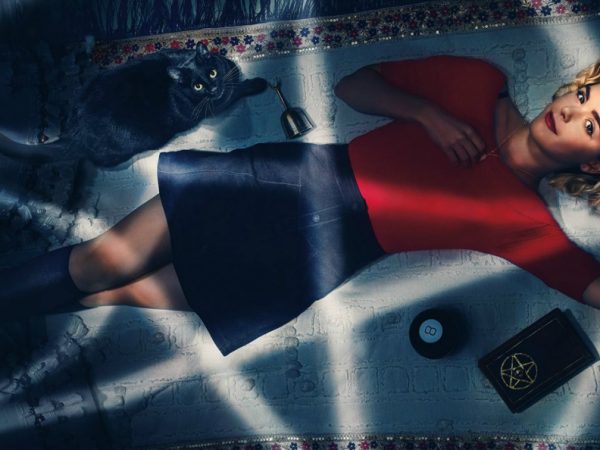Empowerment, Satire… or Poor Timing?
Sabrina Carpenter’s Album Cover
Sabrina Carpenter’s new album cover is sexy, provocative, and self-aware. She’s playing with a retro aesthetic with the idea that people will talk. And of course they have. A lot.
The imagery? A sultry 1950s-style pin-up in a little black dress, on her knees, with a man (whose face we don’t see) gripping her by the hair. It was NOT subtle. It was designed to provoke, and it worked. But it’s the conversation around it that I’ve found particularly fascinating (*grabs virtual popcorn*).
I read so many negative comments, and discussions, and threads online. It’s never-ending. But all of it offers a glimpse into the cultural moment we’re living in.
Carpenter’s lyrics often play with power and desire. They aren’t passive or pandering. If anything, she writes women with wit, irony, and agency. In “because i liked a boy” (did you know the video has a tiger in it?? yay tigers), she sings: “Now I’m a homewrecker, I’m a slut / I got death threats fillin’ up semi-trucks”. A direct response to the misogyny she faced simply for dating in public. And it’s true. Women have the social pressure to be desirable but not too assertive, sexual but not slutty, confident but not intimidating (wait, have I said that before? Oh yes, here)
In that light, the album cover can easily be read as an extension of that same feminist edge: a woman presenting herself how she wants, knowing full well it will cause a riot.
But here’s where I start to feel conflicted.
Right now, we’re in a moment of growing backlash against women’s autonomy (particularly in the US, but also spreading across Europe). Reproductive rights are being eroded. The tradwife aesthetic is glamorising submission and inequality with pretty bows and homemade granola bars. And a new wave of ultra-conservative messaging is gaining traction online.
In this article on The Guardian by Deborah Frances-White (do you listen to The Guilty Feminist? I’m addicted), she warns: “Between 2008 and 2017, about $50m of funding flowed into Europe from 12 of the most influential Christian rightwing foundations in the US […] there has been a creeping expansion of anti-abortion Christian nationalist groups in the UK since 2013. When same-sex marriage was legalised in the UK and France, these groups went into overdrive and were triggered to hire lawyers and political scientists to learn how to draft laws and bills to fight progressive movements.” (Full article here: The Christian right has set the US on the road to Gilead. Without a fight, other nations may follow)
In that context, the cover feels less like a cheeky joke and more like something ripe for misinterpretation by the very forces working to strip women of their rights. I can already see a million right-wing bots stirring the pot and causing online chaos. And it’s worth asking: when everything’s already so charged, is this kind of irony helping the cause, or clouding the message?
There’s also the matter of how it went viral. As The Guardian’s Adrian Horton put it: “This is pop music, after all – sex sells, and whether people are buying her shtick or not, we’re still talking about her album.” (Full article here: Is the Sabrina Carpenter album art really that offensive?)
The cover did its job from a marketing perspective. But should we expect more from pop culture than shock and crude messages? Especially when younger fans are watching and learning (Sabrina Carpenter’s audience is primarily 18-24 year old females)?
This reminds me of something I wrote in an upcoming piece about the TV show Adolescence. We’ve lost the space for messy, nuanced conversations. People rush to defend or cancel, idolise or condemn. There’s little room left for saying: “I like this and I have questions about it.”
A recent Guardian opinion article by Jennifer Jasmine White made a similar point, calling out the way feminist critiques are often shut down: “If images of sexual subordination make some feminists uncomfortable, we should talk about that too. Instead, we’re reverting to ironically paternalistic tellings off.” (Full article: When did ‘feminist critique’ of celebrities become nothing more than a snide telling-off?)
Personally, I don’t think Sabrina Carpenter owes me a message wrapped in neat clarity nor she’s responsible for solving feminism. But I also think it’s okay to wonder what impact this imagery might have on younger fans, especially in such a politically loaded moment.
Maybe when the full album drops next week, we’ll see more of the picture (bigger picture? full storyline?). Until then, I think it’s fair to say: this cover made its point. I just hope we’re still able to discuss what that point actually was, without shouting each other down and cancelling one another.
YouTube video below





